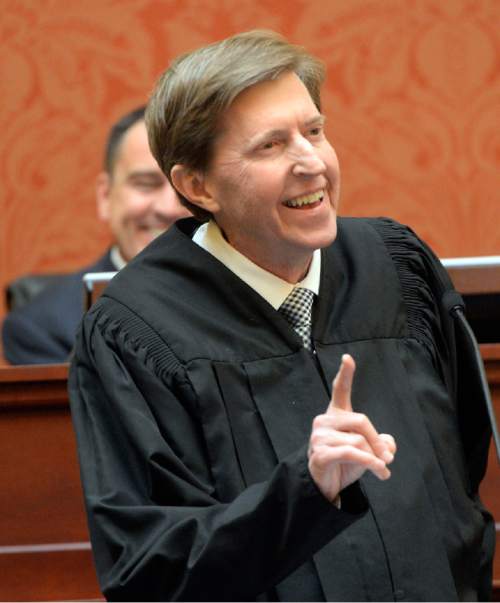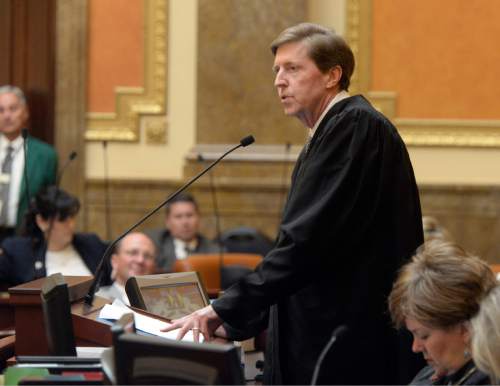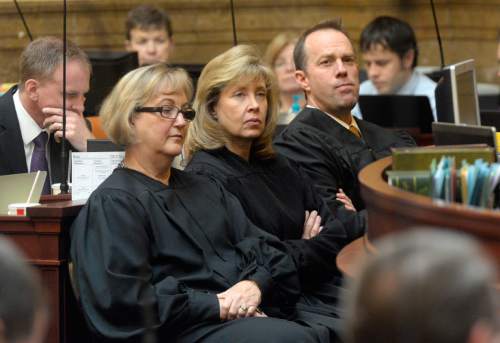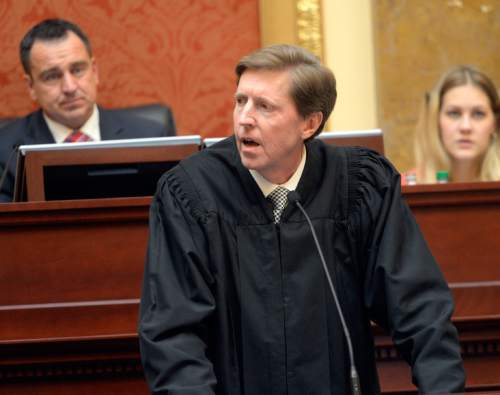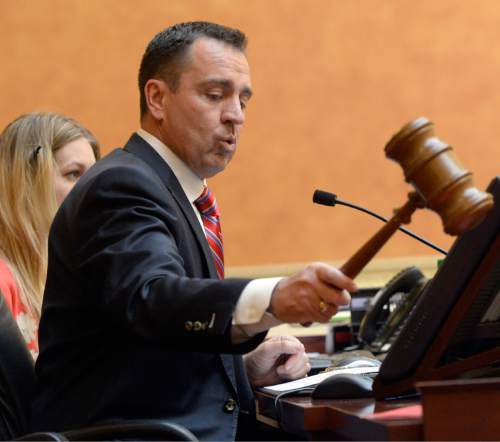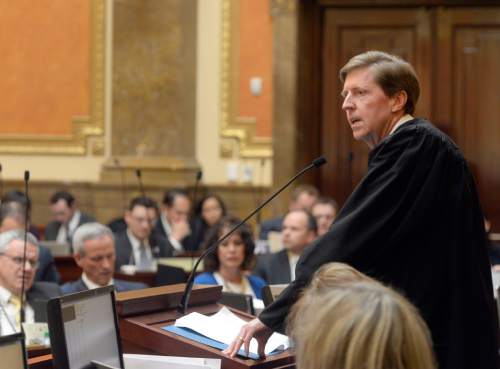This is an archived article that was published on sltrib.com in 2015, and information in the article may be outdated. It is provided only for personal research purposes and may not be reprinted.
Utah must spend more on drug and mental-health treatment if it wants to cut crime, Utah Supreme Court Chief Justice Matthew B. Durrant told legislators Monday.
"The consensus estimate is that 80 percent of all crimes involve some underlying drug or alcohol problem," Durrant said in his annual State of the Judiciary speech.
"From the court's perspective, the most important thing we can do to reduce recidivism and increase public safety is to provide necessary drug and alcohol treatment," he said. "And to do that, we need treatment resources."
Gov. Gary Herbert has proposed spending an extra $10.5 million in his budget for the Department of Corrections for such efforts. His Healthy Utah proposal for Medicaid expansion also includes money for treatment.
Durrant said drug courts — designed to help offenders with a high risk of recidivism because of drug addiction — "don't have enough treatment slots available to admit every defendant who qualifies."
He added, "We estimate that more than 50 percent of those who would otherwise qualify for drug court cannot be admitted because, without our being able to provide them with treatment, there is no point to the drug-court process."
The state recently opened two treatment courts for veterans with drug problems who commit crimes because the U.S. Department of Veterans Affairs has resources available. "I urge this Legislature to provide adequate resources to ensure that all offenders who need drug or alcohol treatment, or mental-health treatment, can receive it," Durrant said. If that happens, "Utah will not only be a better place, but a safer place."
The chief justice also pushed for other additional resources, endorsing legislation to add a district judge in the 5th District for Washington, Iron and Beaver counties, and a juvenile-court judge in the 4th District for Utah, Wasatch, Juab and Millard counties.
"Workloads have reached a point in these districts," he said, "where our ability to resolve cases on a timely basis for the citizens of these counties is threatened."
Durrant urged legislators to increase the salaries of state judges, as recently proposed by the Elected Officials and Judicial Compensation Commission.
Proposals would increase salaries for district and juvenile court judges from $136,500 to $160,000; for appeals court judges from $143,325 to $168,012; and for Supreme Court justices from $150,156 to $176,024.
"Compensation," Durrant said, "remains important to attracting the best people."


